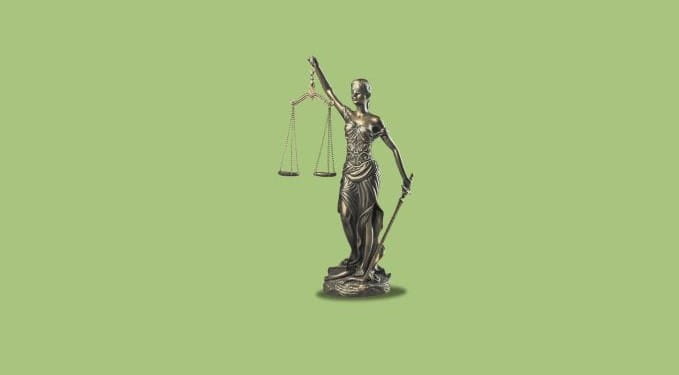All ICAEW Chartered Accountants are bound by ICAEW’s Code of Ethics, which is based on five fundamental principles: integrity, objectivity, professional competence and due care, confidentially and professional behaviour.
Supporting the Code
This document is no substitute for reading the revised ICAEW Code of Ethics in full. It is your professional responsibility to familiarise yourself thoroughly with the Code.
ICAEW's Code of Ethics applies to all members, students, affiliates, employees of member firms and, where applicable, member firms, in all their professional and business activities.
At the heart of the Code are five fundamental principles and the conceptual framework. The Code requires professional accountants to comply with the fundamental principles of integrity, objectivity, professional competence and due care, confidentially and professional behaviour.
The nature and circumstances of accountants’ day-to-day work might create threats to their compliance with these principles, which is why they must also apply the conceptual framework. The framework has been created to help accountants:
- identify threats to compliance with the fundamental principles;
- evaluate the threats identified;
- address the threats by eliminating or reducing them to an acceptable level; and
- meet their responsibility to act in the public interest.
Applying the conceptual framework requires having an inquiring mind, exercising professional judgment (taking into account complex circumstances), and using the “reasonable and informed third-party” test.
In applying the conceptual framework, a professional account should be aware of potential biases that might influence them.
The effective application of the conceptual framework is enhanced where there is an ethical culture in place, in the organisations in which a professional accountant works. All professional accountants have a responsibility to promote an ethics-based culture in their organisations.
Identifying threats
The conceptual framework acknowledges that threats to compliance with the fundamental principles might be created by a broad range of facts and circumstances.
It is not possible to define every situation that creates threats. In addition, the nature of engagements and work assignments might differ and, consequently, different types of threats might be created.
The framework outlines a series of categories of threat to help accountants understand what threats they might be facing. These are:
- Self-interest threat – a financial or other interest will inappropriately influence judgement or behaviour.
- Self-review threat – not appropriately evaluating the results of a previous judgement or activity, on which the accountant will rely when forming a judgement as part of performing a current activity.
- Advocacy threat – promoting a client’s or employing organisation’s position to the point that the accountant’s objectivity is compromised.
- Familiarity threat – due to a long or close relationship with a client, or employing organisation, a professional accountant will be too sympathetic to their interests or too accepting of their work.
- Intimidation threat – deterred from acting objectively because of actual or perceived pressures, including attempts to exercise undue influence over the accountant.
The conceptual framework clarifies that a circumstance might create more than one threat, and a threat might affect compliance with more than one fundamental principle.
.
Evaluating threats
Once a threat to compliance with the fundamental principles has been identified, the accountant must evaluate whether such a threat is at an acceptable level.
An acceptable level is a level at which a professional accountant using the “reasonable and informed third party test” would likely conclude that the accountant complies with the fundamental principles.
The conceptual framework outlines the factors that are relevant when evaluating the level of threats, as well as how to consider new information or changes in fact and circumstances.
Addressing threats
When threats are not at an acceptable level, the conceptual framework requires accountants to address those threats by eliminating them or reducing them to an acceptable level.
It outlines potential ways in which to eliminate threats including the application of safeguards. Safeguards are actions, such as:
- restructuring responsibilities,
- segregating duties, or
- obtaining appropriate oversight, such as, acting under the supervision of an executive director.
Accountants must then reflect on the actions they will or have taken, and whether they will eliminate threats or bring them to an acceptable level.
Having an inquiring mind
An inquiring mind is a prerequisite to obtaining an understanding of known facts and circumstances necessary for the proper application of the conceptual framework. It involves:
- considering the source, relevance and sufficiency of information obtained, taking into account the nature, scope and outputs of the professional activity being undertaken; and
- being open and alert to a need for further investigation or other action.
The conceptual framework provides examples of what to consider when evaluating the source, relevance and sufficiency of information.
Exercising professional judgement
To comply with relevant laws and regulations and behave in a manner consistent with the profession’s responsibility to act in the public interest in all professional activities and business relationships.
To avoid any conduct that the professional accountant knows or should know might discredit the profession.
A professional accountant shall not knowingly engage in any business, occupation or activity that impairs or might impair the integrity, objectivity or good reputation of the profession, and as a result would be incompatible with the fundamental principles.
Conduct that might discredit the profession includes conduct that a reasonable and informed third party would be likely to conclude adversely affects the good reputation of the profession.
A reasonable and informed third party would expect that a professional accountant, in their professional life treats others fairly, with respect and dignity and, for example, does not bully, harass, victimise or unfairly discriminate against others.
The 'reasonable and informed third party' test
A consideration by the professional accountant about whether the same conclusions would likely be reached by another party.
Such consideration is made from the perspective of a reasonable and informed third party, who weighs all the relevant facts and circumstances that the accountant knows, or could reasonably be expected to know, at the time the conclusions are made.
The reasonable and informed third party does not need to be an accountant but would possess the relevant knowledge and experience to understand and evaluate the appropriateness of the accountant’s conclusions in an impartial manner.
More on the conceptual framework
ICAEW’s Code of Ethics provides more detail on applying the conceptual framework
ICAEW Code of Ethics 2025
PDF (3,876kb)
The 2025 edition of the Code comes into effect on 1 July.
DownloadGuidance and support


